In the context of restraint prevention, the SPDC hospital department of San Filippo Neri of Asl Roma 1, in collaboration with the International Foundation Don Luigi Di Liegro, proposes a pilot project aimed at building a network pathway against isolation that can help hospitalized people better cope with an inherently complex situation.
The project includes the activation of a process that is not exclusively medical but also social and supports relational skills and personal effectiveness, respecting the condition of fragility of the participants and enhancing their resources. Through art-mediated communication (music, painting, manual work objects, writing and reading, body movement, etc.), exchange becomes possible, and the professional acts as a mediator of interpersonal communication in the group.
The content and form of the workshops were designed and chosen to promote socialization among participants, listening, and mutual recognition, respecting each individual's space and the free choice not to participate or simply to observe, depending on the participants' feelings. The aim is to foster an atmosphere of harmony and mutual acceptance as much as possible.
Each meeting is complete in itself, considering that the composition of the group is continuously changing. Users are given the freedom to participate or not, as they choose, each time.
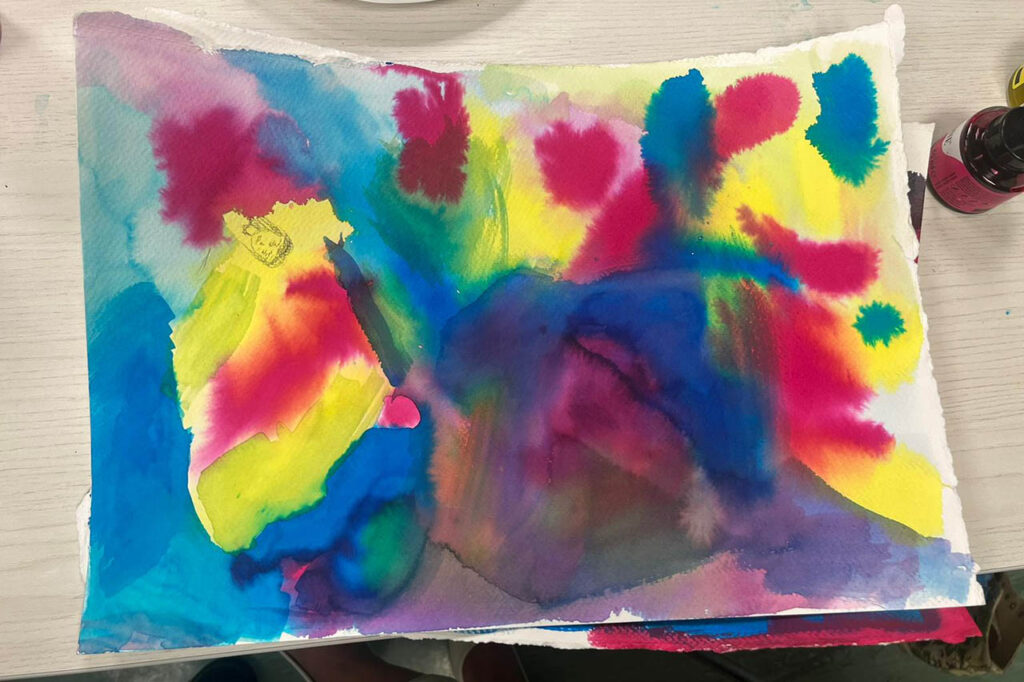
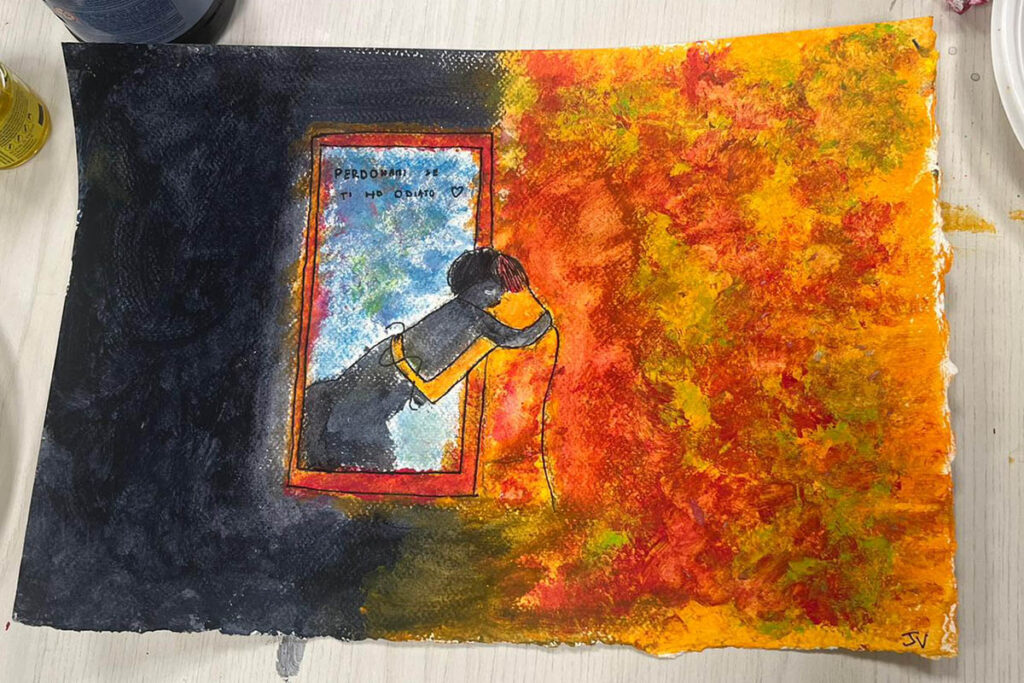
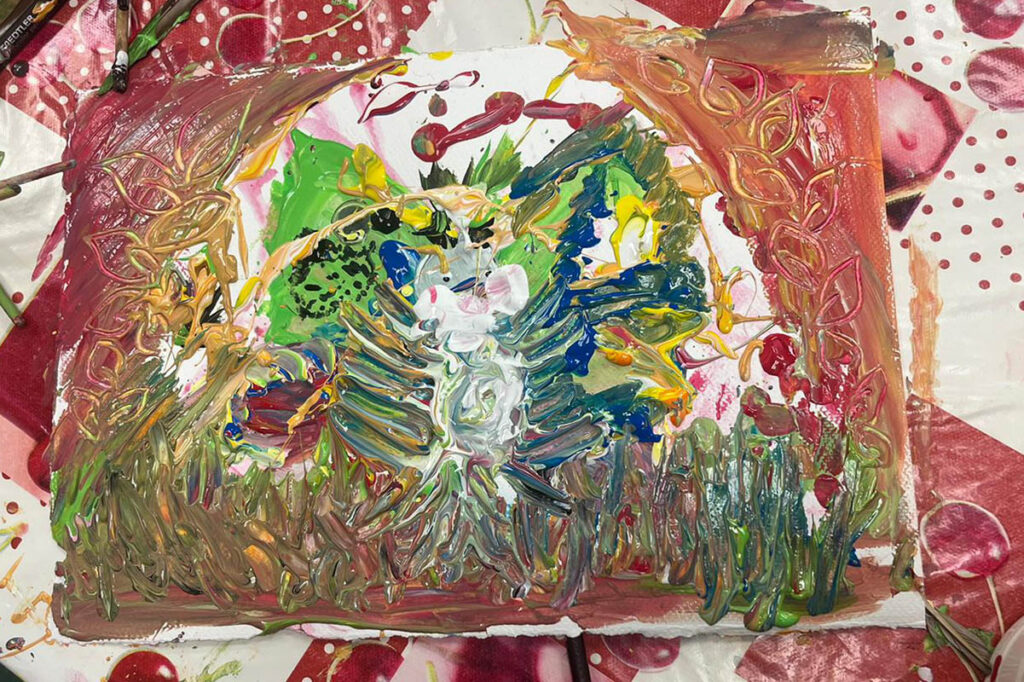
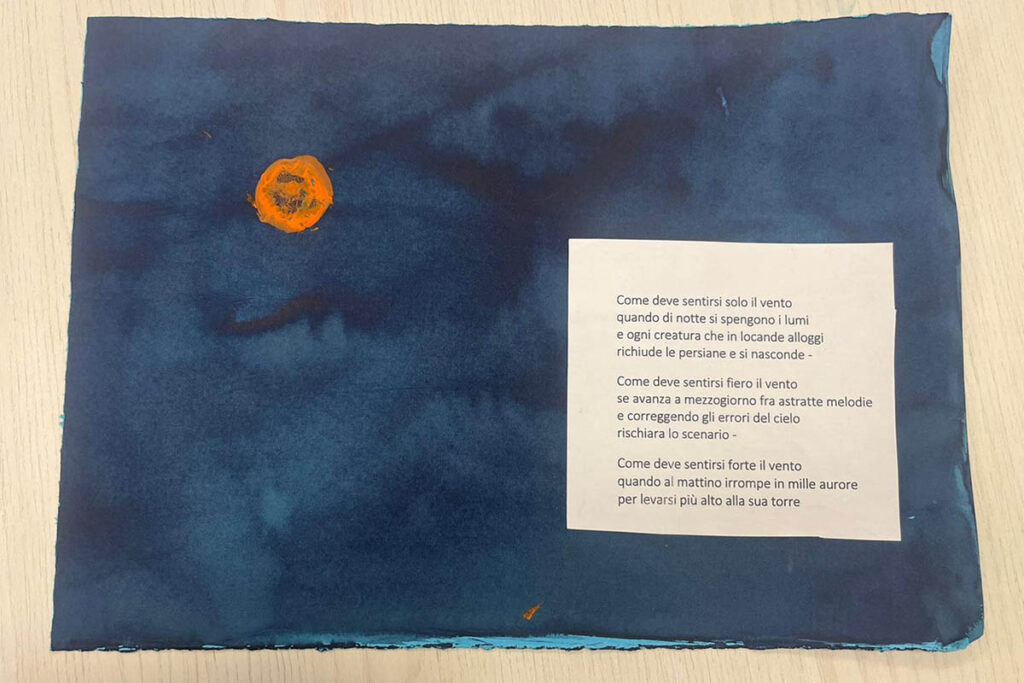
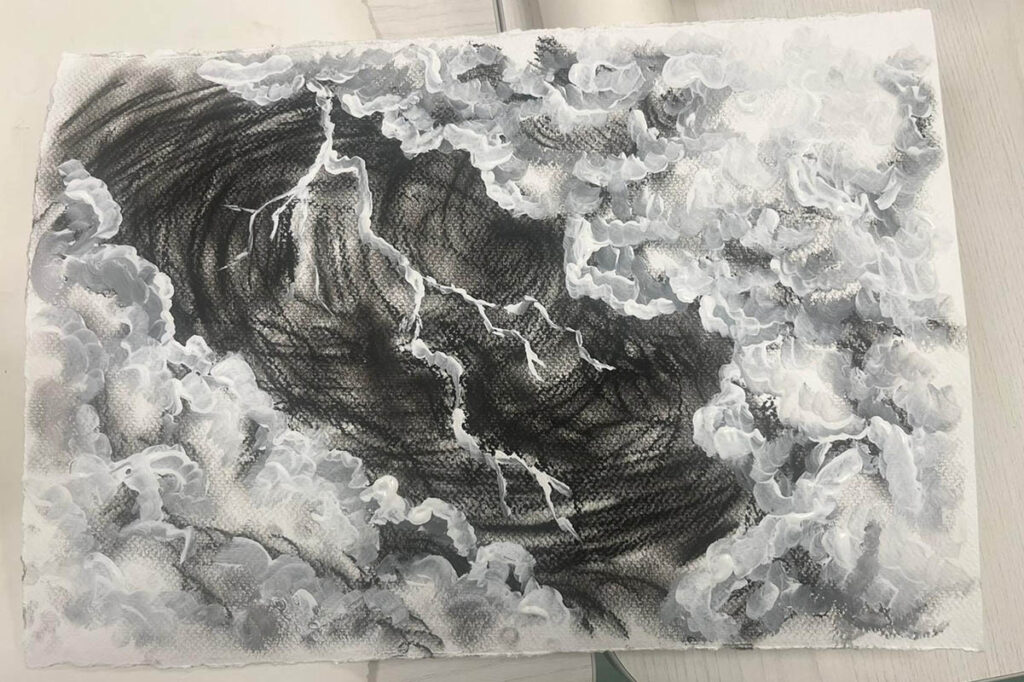
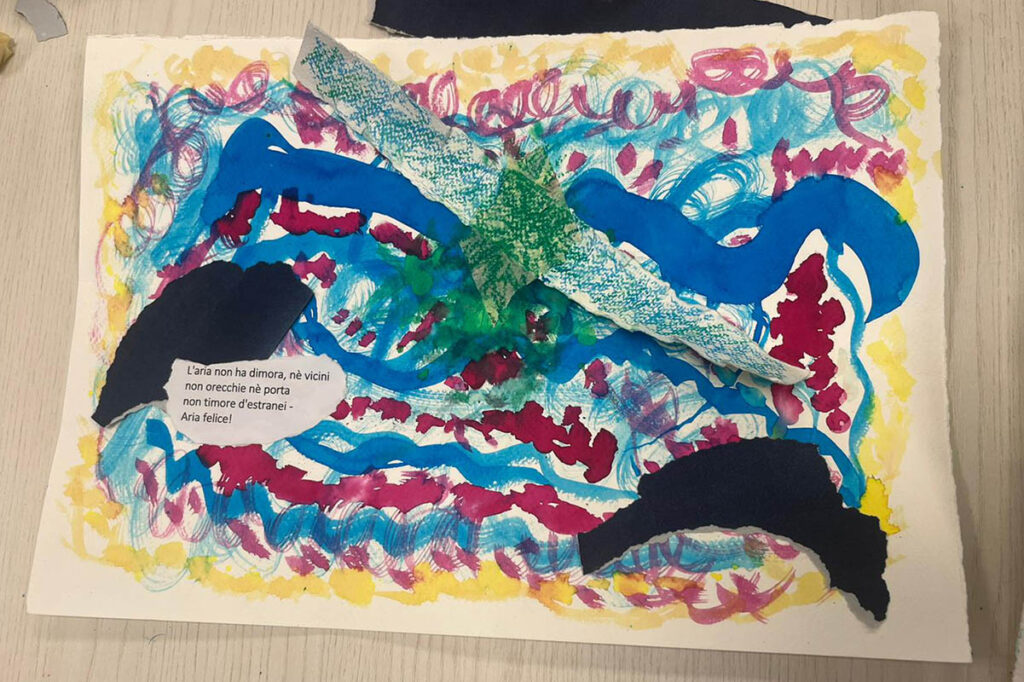
In order to prevent isolation and social marginalization, the project proposes the activation of a listening and assistance service in the area, which provides information on mental health services, orients users and supports them in defining a personalized project with territorial services.
To raise awareness among citizens about mental health, the project organizes training courses, information and annual conferences on topics such as Recovery and addictions. The training objectives include the creation of a group of volunteers to facilitate the social inclusion and therapeutic path of people with mental distress through socialization workshops, such as theatre, music, photography and art therapy.
In order to combat the loneliness of family members of people with mental health problems, the project promotes self-help groups with weekly meetings and monthly supervision by professionals, such as psychiatrists and psychologists, to provide supportive support and share experiences.
The project is conceived following a Recovery approach, which aims to give users an active role again, transforming them from passive recipients to protagonists involved in their own choices and committed to fully developing their potential.
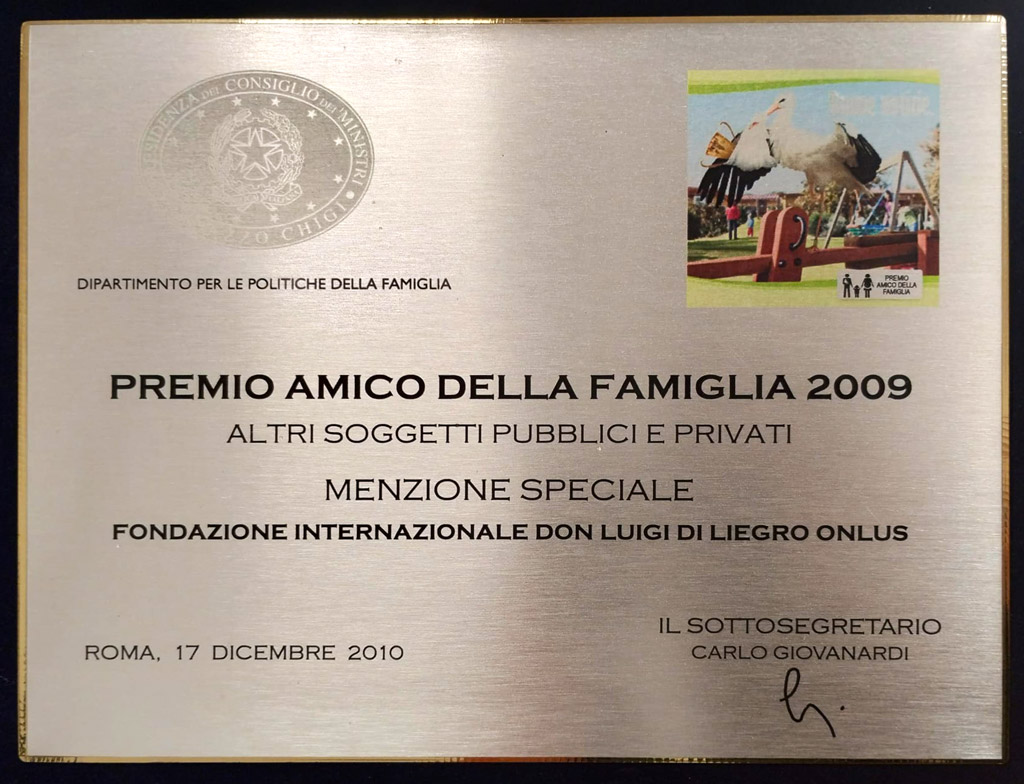
The area of intervention of the project was mainly the ASL Roma 2 area, but it was aimed at citizens of the entire territory of Rome Capital. The project allowed a broad involvement of users, family members, citizens and institutions. The activities implemented largely represent examples of replicable good practices and an example of civic participation, empowerment and social inclusion of isolated or people in difficulty. The activities are free for participants, open to all citizens, supported by a monitoring system and the use of systems to protect individual privacy.
Good practices in the field of mental health certainly emerged from the project activities, such as the effectiveness restored to people with discomfort through the creation of inclusive socialization spaces. In fact, often in mental health services laboratory activities are exclusive to those with a psychiatric diagnosis and people risk being ghettoized and self-excluding themselves. Supporting not only professionalizing activities with art masters but also socialization with volunteers and non-clinical operators allows for better use of the tool e.g. artistic in favor of rehabilitation and the acquisition of safety by the person. Another good practice is to encourage the meeting of family members of users who come from different contexts: through discussion and networking between people who face the same caregiving difficulties it is certainly an element of help for the whole family and the valorisation of resources .
IncluPsy is a project funded with support from the European Commission which aims to promote the social inclusion of people living with mental disorders. There are 6 partners (coming from five different European countries) called to discuss and exchange their experiences in order to strengthen their capabilities and define good practices on the topic.
With Inclupsy we also want to increase the awareness and the involvement on the topic of a larger number of actors on the topic of social inclusion. In fact, according to the World Health Organization, one in four Europeans suffers from mental illnesses.
The report "Health at a Glance: Europe", created by the European Commission and the Organization for Economic Co-operation and Development, highlights how mental distress is one of the most urgent issues to be addressed and warns of economic and social consequences of the problem.
People with severe and persistent mental disorders generally suffer from a great sense of isolation, the loss of the ability to undertake initiatives and live in independent housing, hold a job and carry out normal daily activities.
These effects, combined with the stigmatization and, in certain cases, prolonged and repeated psychiatric hospitalizations themselves become a factor of social disintegration, leading people to lose their homes, wander the streets and be excluded.
In light of the links (as cause or consequence) between mental disorders and social exclusion, it is not surprising that inclusion is one of Europe's priorities. But What practices are implemented by Europe to promote the social inclusion of people living with mental disorders? This question is the underlying theme of the IncluPsy project.
Go to site by IncluPsy.
The project was based on the belief that a more welcoming and inclusive society responds more effectively to the many critical issues arising from mental distress. Work, in this sense, represents a fundamental piece in everyone's life and an essential step towards building an autonomous and more fulfilling life.
Over the two years of the project's life, the people involved were included in modular paths which included various actions including: orientation and assessment of skills; empowerment interventions, self-promotion, social inclusion; accompaniment, tutoring and exploration of training and work opportunities; psychological support; family support and counseling.
An individual project was developed for each person taken care of, starting from each person's skills and resources. Comparison and dialogue within professionalizing and expressive workshops was one of the strong elements of the project.
Over 60% of the participants took part in training internships, which in some cases were transformed into actual employment contracts.
From the experience of the "Getting in motion" project, various initiatives on workplace inclusion have arisen over time, also thanks to information and awareness-raising actions in the public and private world on mental health problems.
The project, aimed mainly at people over 40 residing in the city of Rome who have lost their jobs, introduced actions that have been taken up over the years in various locations, both at national level and in the European Community.
Supply emotional and psychological support, intervene on recovery and enhancement of professionalism and skills, activate networks and resources for re-entry into the job market, the cornerstones of the project are still strategic interventions for the employment inclusion of people with fragility.
Unfortunately, this is an ever-present topic if you consider that the unemployment rate in Italy today (15-64 years) is 7.6%, the inactivity rate - relating to people who have stopped looking for work - is 33.5%; these data for women are 8.7% and 42.7% respectively. If we observe the situation only in the South, the data are all worse: unemployment 13.9%, inactivity 44.2%, female 16.1%, youth 35% (Istat, June 2023).
Among the tools successfully tested by the project, to combat the state of poverty and unemployment, we highlight: orientation and relational reactivation meetings; the welcome, support and coaching service; the provision of an income support "Grant". Individual paths which, combined with group work, accompanied the development of entrepreneurial skills and abilities of the participants and actively contributed to the recovery of psychological balance and the prevention of forms of serious mental distress.
All the actions implemented to date represent good practices that can be replicated with their intervention model.